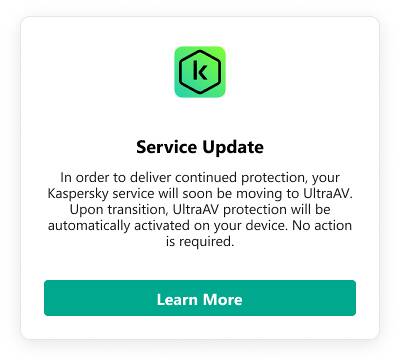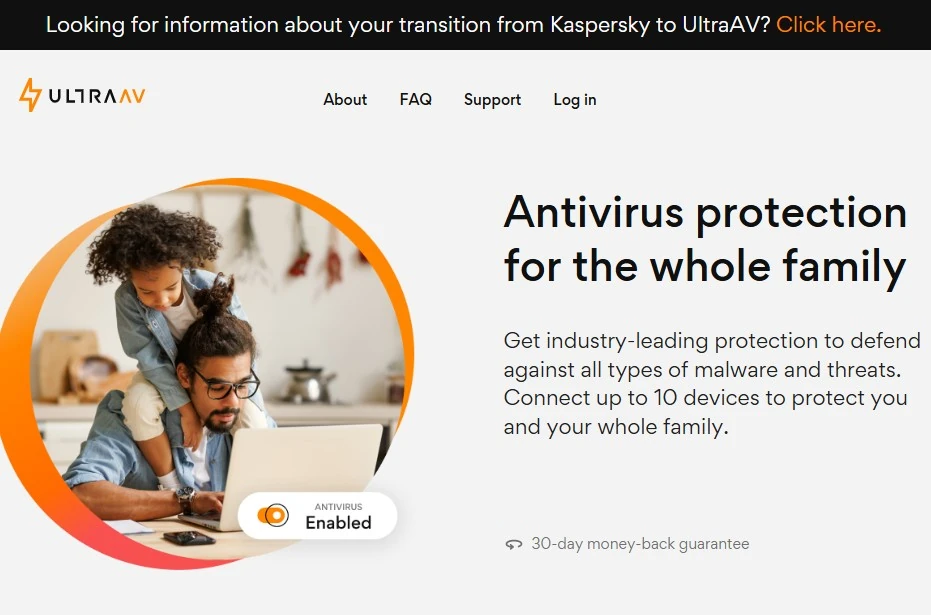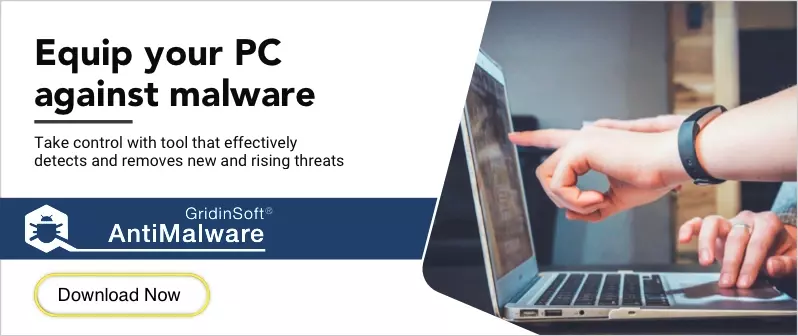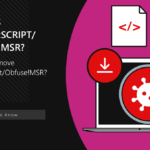Kaspersky, an infamous Russian antivirus brand, is now back on the US market with its off-branded software, UltraAV antivirus and UltraVPN. The company was forced out of the US accused of collecting excessive amounts of user information and posing a threat to the US national security. But are these “new” products safe to use? Let’s find out.
UltraAV and UltraVPN: New Kaspersky Brands
Two months following the ban from the US market, Russian cybersecurity vendor Kaspersky resurfaced in an inofficial manner. As no bans were lifted from the US side, this was the only option, as attempts to squeeze through the restrictions will likely lead to bans, and will have problems with monetization. And now, Kaspersky antivirus and VPN software solutions are back, though under a different branding – UltraAV and UltraVPN.

Kaspersky was banned in June 2024 after a 5-year-long investigation after accusations of data collection from its users. While other antivirus vendors can do this, too, the Russian vendor has two distinct differences. Firstly, it was proven to put its hands on exact files, file names or similar information, gathered from the system running their antivirus, which is not normal and is not met elsewhere. Secondly, Kaspersky is registered in Russia, meaning it should obey its law. And the latter, in turn, demands companies to store all the user data (including things I’ve just mentioned) and provide law enforcement access to it on demand. That is a pretty significant safety concern that has been multiplied after the 2022 Russian invasion of Ukraine.
The new, completely de-personified names give little to no brand trust, though people familiar with the “old” Kaspersky software will likely have no doubt in new. Aside from the branding, they have also changed the website: instead of Kaspersky.com, they now use Ultrasecureav.com, while the former remains active even though the products from the page are banned. The latter was registered around the date when the US court stated the ban for Kaspersky, so the prohibition was expected and the company was getting ready ahead of the events.

Are UltraAV and UltraVPN Safe to Use?
Nominally, yes, but I won’t recommend you using them if you value your privacy. While having a very effective scanning engine and overall well-established ecosystem, deliberately exposing personal information is suboptimal for many users. Some may say their information is not very valuable and Google/Apple/other software companies do it anyway, but this is where trustworthiness comes into play. US companies typically use such information for targeting ads according to your preferences, while UltraAV-Kaspersky does so without any reasonable explanation. And the users, along with the court came to the conclusion it all is about gathering big data from the entire world in favor of Russian intelligence.
Things are getting even worse with VPN services. Antivirus programs can access files in a certain way, but that is it – they do not get to some really valuable information to begin with. UltraVPN, on the other hand, wires all the network traffic on the device through itself, meaning that all the browsing history will end up on the VPN’s servers. And while some virtual private network providers boast of recording absolutely no logs of user activity, this is, once again, not the story of rebadged Kaspersky products.
The overall verdict here is that you can use both antivirus and VPN: they are not malicious and provide the declared features. But each one of them puts user information safety into question, especially in the long run. And, in fairness, there are a lot of other options for decent antiviruses around, that do not have these disadvantages.





